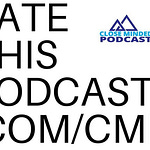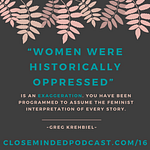My guest today, Joel Comm, is a bestselling author, professional keynote speaker, social media marketing strategist, live video expert, technologist, brand influencer, futurist, and eternal twelve-year-old. He has more than two decades of experience harnessing the power of the web, publishing, social media, and mobile applications to expand reach and engage in active relationship marketing. His books include The Adsense Code, Twitter Power, and The Fun Formula. He is famous (or infamous) for inventing the iFart app way back in 2008, which exploded to the top of the Apple App store charts and, um, lingered there for quite some time. His most recent successful venture is as cohost of the Bad Crypto Podcast, which started off as two complete novices doing a deep dive into the world of cryptocurrencies and blockchain.
In our wide-ranging conversation we discuss his successes and failures, how he got started in computers, the secrets to his bottling lightning multiple times in his eclectic career, Trump, battling woke culture and defending free speech.
Find Joel Comm on the interwebs:
JoelComm.com
https://twitter.com/JoelComm
The Fun Formula: Who Says Work Can't Be Fun?












